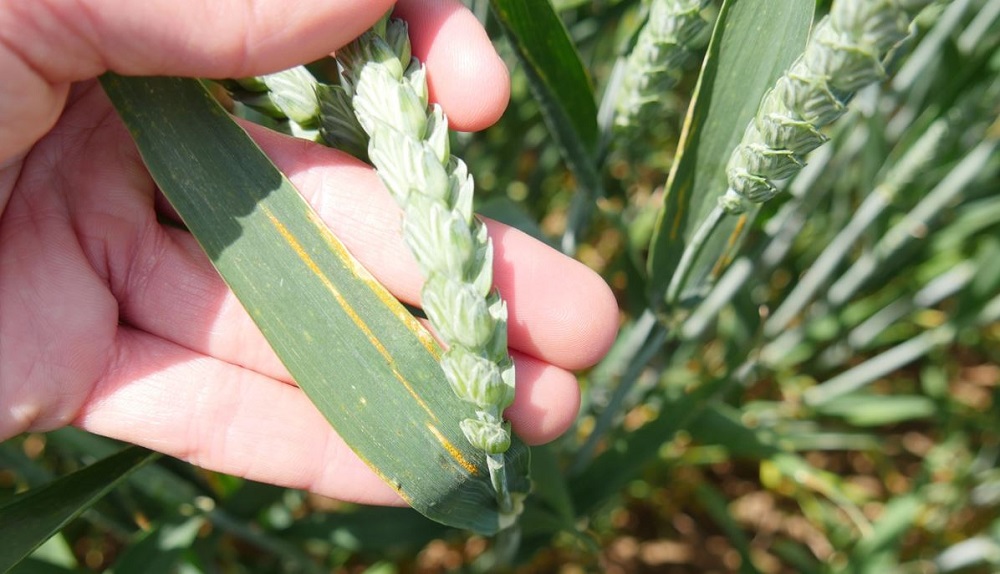Management of yellow rust in rapidly developing wheat
Friday, 26 April 2024
With reports of rapid yellow rust development in some winter wheat crops, it is important to understand the role varietal genetics plays in the fightback. In this blog, members of the AHDB agronomy team consider the distinction between adult plant stage and young plant stage disease resistance.
Warmer temperatures (and ample moisture) accelerate crop development. Spring weather also boosts diseases too, including yellow rust. We have received numerous reports of the disease in crops across the UK, including on some varieties with relatively high adult plant disease resistance ratings.
With stems elongating, some winter wheat will have already received a T1 treatment, with other farmers looking for breaks in the weather to spray.
Many farmers want to reduce the intensity of fungicide programmes (to manage costs and protect fungicides from resistance). This is all well and good, as long as disease control remains effective.
To strike the right balance, there is a lot to consider. However, varietal resistance should always be at the foundation of any decision, so it is important to check the latest Recommended Lists (RL) for resistance information and be clear about what the data reveals.
Adult plant resistance
With two rows of resistance information in the winter wheat tables, yellow rust resistance is unique in the RL.
The main one is based on the standard 1–9 rating scale (where 9 is the highest level of resistance).
Also called the adult plant resistance rating, disease data collected after growth stage 55 is used to calculate this rating. It may sound like a late assessment but there is a sound reason for it.
The expression of adult plant resistance varies across winter wheat varieties. Typically, it ranges from growth stage 20 to growth stage 49. However, cooler weather can delay it and high disease pressure can speed it up.
By growth stage 55, it is likely that all varieties will express adult stage resistance. At this point, the playing field is level, helping to provide the fairest test of resistance in RL trials.
Young plant resistance
Since RL 2023/24, the tables for winter wheat have also included information on young plant resistance to yellow rust (sometimes called seedling stage resistance).
Young plant resistance is based on different genes (to the adult plant stage) and is active throughout the plant’s life.
Some varieties are susceptible at the young plant stage but develop moderate to high levels of resistance later, after the adult plant stage resistance kicks in.
Information on young plant resistance is provided by the UK Cereal Pathogen Virulence Survey (UKCPVS), which monitors cereal rusts and mildew on RL varieties annually. This information is used to help determine the resistant (r) and susceptible (s) status published in the RL.
Due to the diversity in the UK yellow rust pathogen population, it is not unusual for varieties to be reclassified.
For example, the latest UKCPVS screening results detected susceptibility to yellow rust in three varieties listed as resistant at this stage in the current (2024/25) RL – RGT Bairstow, RGT Rashid and KWS Zealum. You may see more early disease in these varieties than in previous seasons. In the last few years, some very popular varieties have also been reclassified as susceptible at the young plant stage, including KWS Extase and Graham.
High early disease pressure can cause the heart to flutter. It is important to keep your cool and base treatment decisions on young plant and adult plant resistance ratings.
 AHDB
AHDB
Meet the team

Siobhan Hillman
Crop Protection Scientist (Weed Lead, RL Disease Ratings and Watch Lists)


.jpg)


